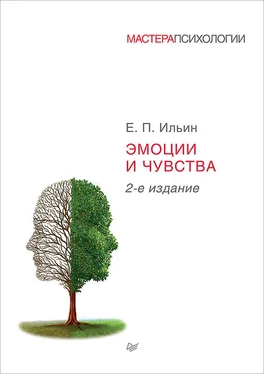Richter U. Die Rache der Frauen. Formen weiblicher Selbstbehauptung. Stuttgart, 1991.
Rime B. Les theories des emotions // Cah. psychol. cognitive. 1984, v. 4, № 16, ð. 5.
Rizzo T. A., Corsaro W. A. Toward a better understanding of Vygotsky’s process of internalization: Its role in the development of the concept of friendship // Developmental Review, 188, 8, p. 219—237.
Rosen W. D., Adamson L. B., Bakeman R. An experimental investigations of infant social referencing: Mothers messages and gender differences // Developmental Psychology, 1992, v. 28, p. 1172—1178.
Rosenbaum M. E. The repulsion hypothesis: On the nondevelopment of relationships // J. of Personality and Social Psycholoogy, 1986, v. 51, p. 1156—1166.
Rosenhan D., London P. Foundations of abnormal psychology. San Francisco, Holt, Rinehart and Winston, 1970.
Rosenthal R., De-Paulo-Bella M . Sex differences in eavestopping on nonverbal cues // Journal of Personal and Social Psychology., 1979, v. 37, № 2, p. 273—285.
Rosenthal R., Hall J. A., DiMatteo M. R., Rogers P. L., Archer D . Sensitivity to nonverbal communication: The PONS test. Baltimore, MD: The Johns Hopkins University Press, 1979.
Rosenzweig S. Psychodiagnosis. N.-Y., 1960.
Rossi G., Rosadini G . Experimental analysis of cerebral dominance in man // Brain mechanisms underlying speech and language. N.-Y., London, 1976, p. 167—184.
Roszell P., Kennedy D., Grabb E. Physical attractiveness and income attainment among Canadians // J. of Psychology, 1990, v. 123, p. 547—559.
Rotter J. B. Generalized expectation for internal vs. external control of reinforcement // Psychological Monographs, 1966, 80 (Whole No. 609).
Rubin K. H. Recept perspectives on social competence and peer status: Some introductory remarks // Child development, 1983, 54, p. 1383—1385.
Rubin Z. Measurement of romantic love // J. of Personality and Social Psychology, 1970, v. 16, p. 265—273.
Rubin Z. Children’s friendships. Cambridge, 1980.
Ruch W., Kohler G., Thriel C . To be in good or bad humour // Personality and Individual Differences, 1997, v. 22, p. 477—491. Ruckmick C. A. The Psychology of Feeling and Emotion. N.-Y., 1936.
Russel B. The conquest of happiness. London, Unwin Paperbacks, 1930/1980.
Russell J. A. Affective space is bipolar // J. of Personality and Social Psychology, 1979, v. 37, p. 345—356.
Russel J. A. Is there universal recognition of emotion from facial expression? A review of cross-cultural studies // Psychological Bulletin, 1994, v. 115, p. 102—141.
Rutter M. Parent-child separation: Psychological effects on the children // A. D. Clark, A. M. Clark (eds.). Early experience: Myth and avidence. London, Open Books, 1976, p. 153—187.
Saarni C. Emitional competence: How emotions and relationships become integrated // R. A. Thompson (ed.). Nebraska Symposium on Motivation. v. 36. Socio-emotional development. Lincoln, University of Nebrasca Press, 1990, p. 115—182.
Saarni C. The development of emotional competence. N.-Y., Guilford Press, 1999.
Sachs H. Das Monotonie-problem // Zeitschrift fur angewante Psychol., 1920, XVI.
Sackeim H., Greenberg M. et al . Hemispheric asymmetry in the expression of positive and negative emotions // Archiv of neurol., 1982, v. 39, № 4.
Sadalla E. K., Kenrick D. T., Vershure B. Dominance and heterosexual attraction // J. of Personality and Social Psychology, 1987, v. 52, p. 730—738.
Salovey P. Social comparison processes in evny and jealousy // J. Suls, T. A. Wills (eds.). Social comparison: Contemporary theory and research. Hilsdale, NJ: Lawrence Erlbaum, 1991, p. 261—285.
Salovey P. Mood induced self-focused attention // J. of Personality and Social Psychology, 1992, v. 62, p. 699—707.
Salovey P., Mayer J. D. Emotional intelligence // Imagination, Cognition and Personality, 1990, v. 9, p. 185—211.
Salovey P., Rothman A. J. Evny and Jealousy: Self and Society // P. Salovey (ed.). The Psychology of Jealousy and Evny. N-Y, Guilford Press, 1991, p. 271—286.
Sarason S. B. The measurement of anxiety in children: Some questions and problems // Ch. D. Spielberger (ed.). Anxiety and behavior. N.-Y., Academic Press, 1966.
Sarnoff A. Personality. Dinamic and Development. N.-Y., 1962.
Sartre J. P. Esquisse d’une theorie des emotions. Paris, 1948.
Saurer M. K., Eisler R. M. The role of masculine gender role stress in expressivity and social support network factors // Sex Roles, 1990, v. 23, p. 261—271.
Savage R., Stewart R. Personality and the success of card-punch operators in training // British Journal of Psychology, 1972, v. 63, p. 445—450.
Savitsky J. C., Sim M . Trading emotions. Equity theory of reward and punishment // Journal of Communication, 1974, 24, p. 140—146.
Schachtel E. G. Metamorphosis. N.-Y., Basic Books, 1959.
Schachter S. The interaction of cognitive and physiological determinants of emotional state // L. Berkowitz (ed.). Advances in experimental social psychology. N.-Y., 1964.
Schachter S., Singer J. E. Cognitive, social and physiological determinsnts of emotional states // Psychol. Rev., 1962, 69, p. 379—399.
Schaffer H. R., Emerson P. E. The development of social attachmentsin infancy // Monographs of the Society for Research in Child Development, 1964, v. 29 (3, Whole № 94).
Scheff T. J. The shame – rage spiral: A case study of an interminable quarrel // H. B. Lewis (ed.). The role of shame in symptom formation. Hillsdale, N.-Y., Erlbaum, 1987, p. 109—149.
Scheler M. Wesen und Formen der Sympathie // Der Phanomenologie der Sympatiegefuhle. Bonn, Cohen, 1926.
Schenk J., Rausche A. The personality of accident-prone drivers // Psychologie und Praxis, 1979, v. 23, p. 241—247.
Scherer K. R. Toward a concept of «modal emotions» // P. Ekman, R. J. Davidson (eds.). The nature of emotion: Fundamental questions. N.-Y., Oxford Univ. Press, 1994, p. 25—31.
Scherer K. R. The role of culture in emotion-antecedent appraisal // J. of Personality and Social Psychology, 1997, v. 73, p. 902—922.
Scherer K. R., Wallbott H. G. Evidence for universality and cultural variation of differential emotion responce patterning // J. of Personality and Social Psychology, 1994, v. 66 (2), p. 31–328.
Schmidtke H. Die Ermudung. Bern und Stuttgart, 1965, s. 195.
Schoeck H. Envy: A Theory of Social Behavior. N.-Y., Hacourt. Brace and Word, 1969.
Schorn M. Untersuchungen uber die Monotoniereaktion bei Kindern // Archiv gesammte Psychol., 1935, 93.
Schultz J. H . Das Autogene Training (konzentrative Selbstentspannnung). 12 Aufl., Stuttgart, 1966.
Schulz R. Emotionality and aging // Self-control and Self-Modification Emotional Behaviour. N.-Y. – London, 1982.
Schwabe Christoph . Musiktherapie, Jena, 1972.
Schwartz G. E. Physiological patterning and emotion // Self-control and Self-Modification Emotional Behaviour. N.-Y. – London, 1982.
Schwarz N . Feeling as information: Information and motivational functions of affective states // E. T. Higgins, R. M. Sorrentino (eds.). Handbook of motivation and cognition: Foundations of social behavior. v. 2. N.-Y., Guilford, 1990, p. 527—561.
Schwarz N., Bloess H., Bohner G. Mood and persuasion: Affective states influence the processing of persuasive communication // M. Zanna (ed.). Advances in experimental social psycholoogy, v. 24. San Diego, CF: Academic Press, 1991, p. 161—199.
Читать дальше
Конец ознакомительного отрывка
Купить книгу












